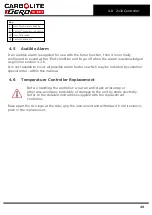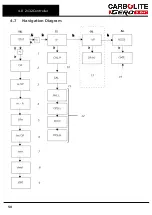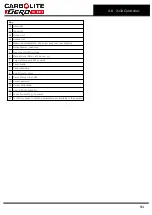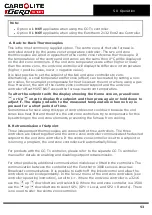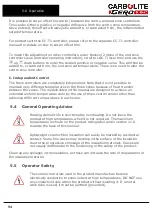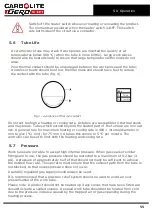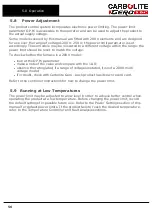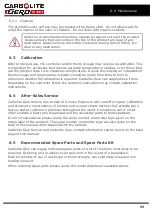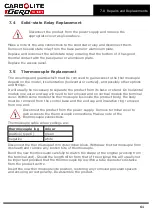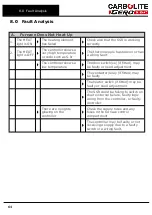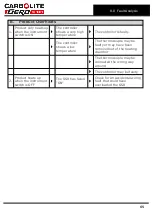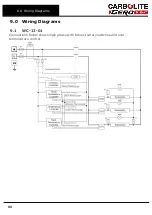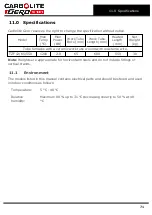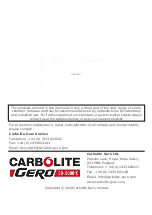
7.0 Repairs and Replacements
7.6
Element Replacement
See section 7.2 - wearing a face mask is required.
The coverings and guards which must be removed to enable replacement of the wound
tube element depend on the furnace model, its orientation (horizontal or vertical), and
other options and fittings. The general procedure is:
Disconnect the product from the electrical supply.
Remove all outer guards, meshes and terminal covers from the product's body. For a
horizontally mounted product remove the product body from its base; to reach the bolts
or screws which fix the body to the base, remove the back panel from the base.
Disconnect all electrical leads from the terminal blocks on the product case. Note the
colours and positions of the connecting leads to enable correct reassembly. Take care
not to crack porcelain terminal blocks - use two spanners where appropriate.
Remove the thermocouples.
Lay the furnace body horizontally with the split in the cylindrical case uppermost.
Remove the two metal end-caps from the body. Except TZF 12/38, undo the self-
tapping screws which hold the terminal strip to the case join. The case should spring
open slightly. Remove the ceramic board disc from one end.
Use a sharp knife to cut right through the insulation down to the wire-wound tube
element along the whole length of the body, but do not cut either of the ceramic board
end discs. The knife cut must be in line with the element lead wires. Slide the element
gently out through the end of the product body.
Check the cylindrical case and clean out as appropriate.
Remove any insulation sleeving from the tails of the old element and fit to the
replacement element.
Slide in the new element(s). Close up the product again, refitting the terminal strip
(where applicable) and the end-caps. Any cut made in the insulation should close up
completely: if the insulation appears loose or damaged in any way, please contact the
Carbolite Gero service division.
Reverse the rest of the disassembly process. Take care to make all connections to the
correct terminals. Do not over tighten the connectors in porcelain terminal blocks.
Let the product heat up at its maximum rate to 900 °C without interruption and then
soak for 1 hour. Fumes may be emitted: this should be done in conditions of good
ventilation.
Check that the product is controlling properly to rule out the possibility that the element
failed because of a fault in the control system.
If you have any problems with this procedure, please contact the Carbolite Gero service
division.
62


